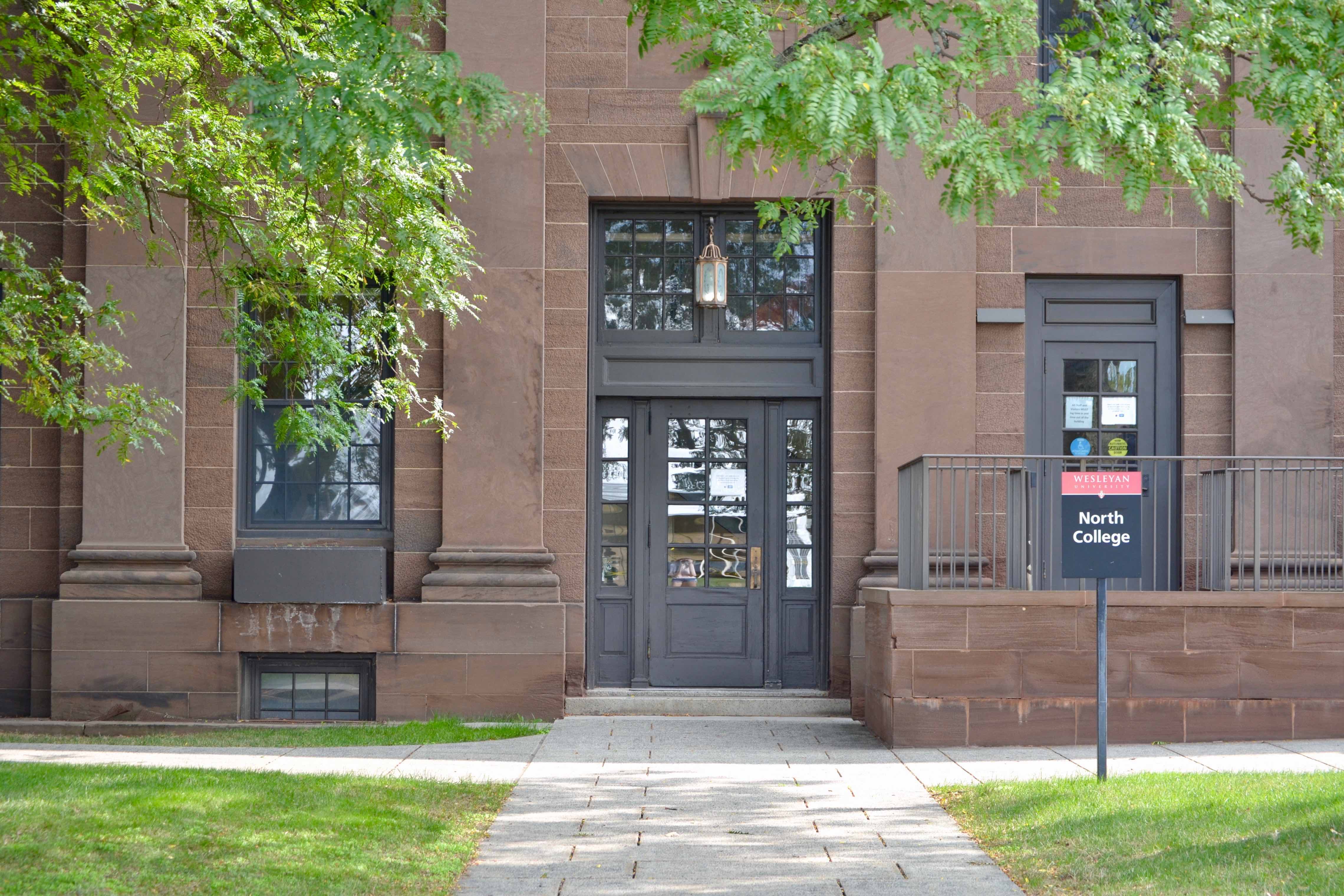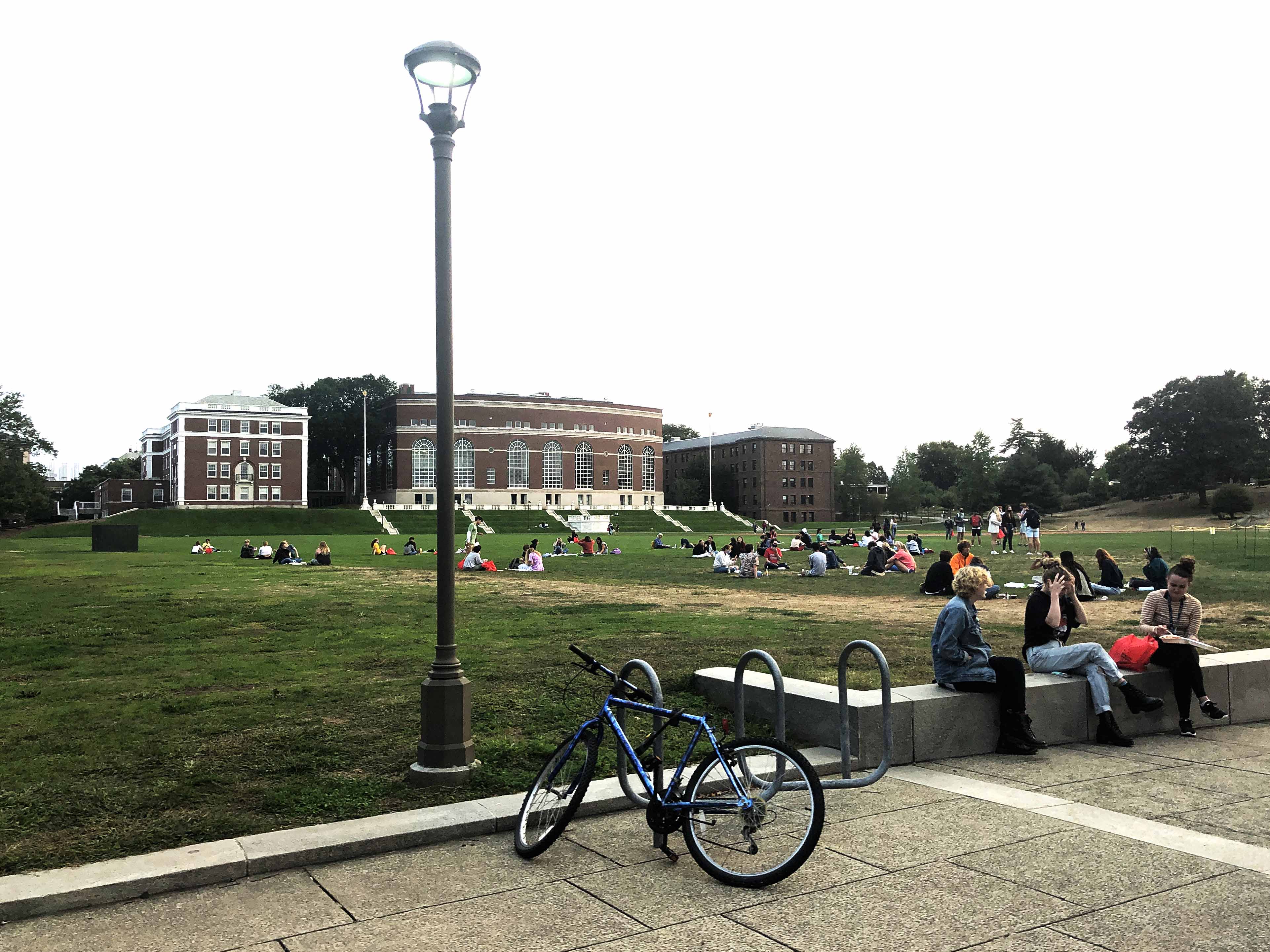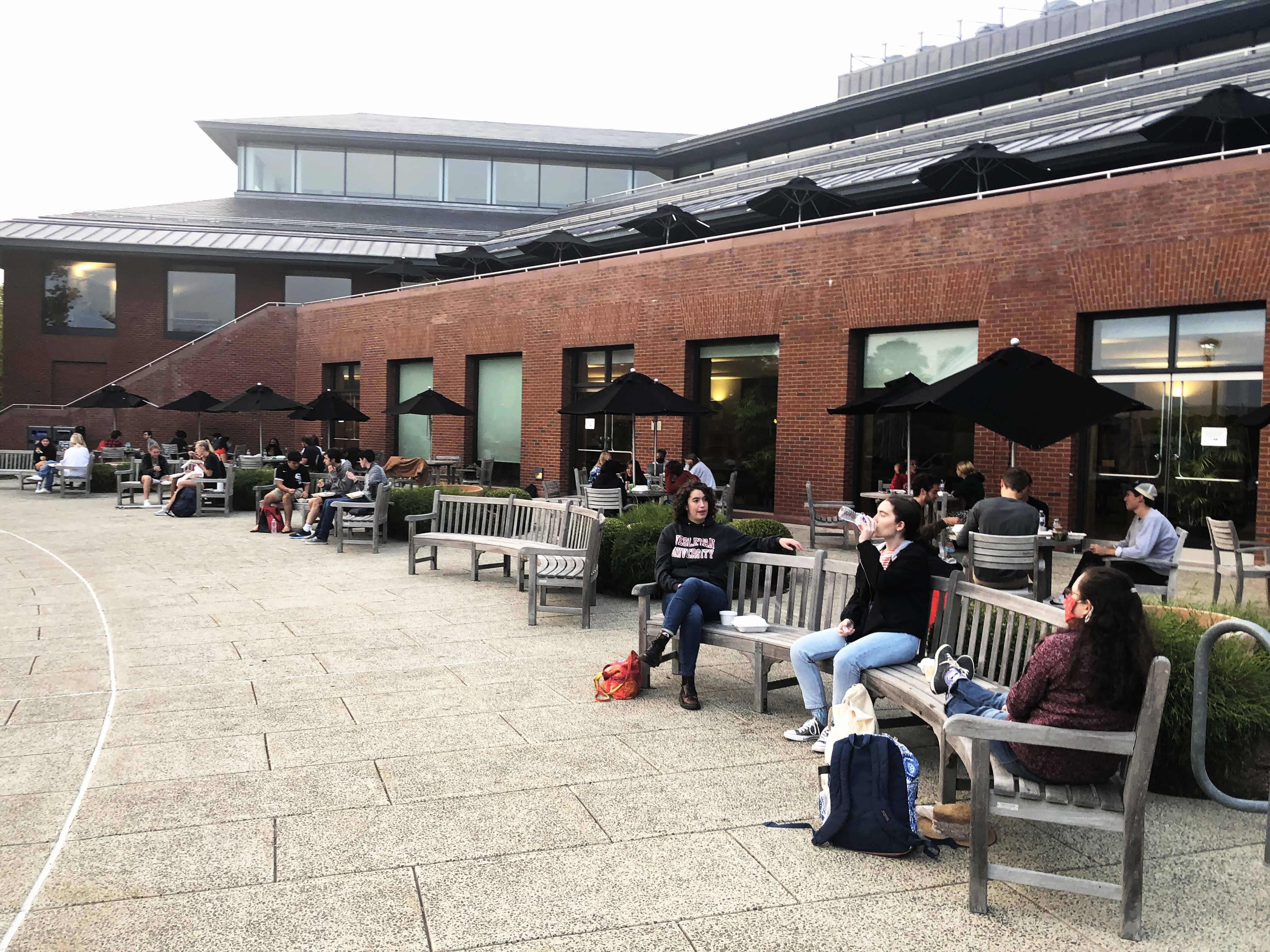Fifteen percent of all undergraduate students enrolled in the University for the fall semester are studying remotely, according to University Registrar Anna C.G. van der Burg. Of the University’s 2,845 enrolled undergraduate students, 427 are remote students, with the remaining 2,418 studying either on campus or, for some international students, studying abroad from their home countries.
The University set a deadline of Aug. 31 for new students to choose to defer their enrollment and for returning students to decide to take a leave of absence. According to van der Burg, 238 returning students chose to take a leave this fall. The class of 2024 saw 47 students choose to defer enrollment to the spring semester.
“Since we hadn’t had spring deferrals as an option previously, there was no way to predict how many students would ultimately choose to pursue the opportunity,” Vice President and Dean of Admission and Financial Aid Amin Gonzalez said. “Some of the interest was based on circumstances beyond student and families’ control, particularly international students whose visas were not able to be processed in time for their travel.”
Almost half of the international students on F-1 visas enrolled for the fall semester are studying remotely, according to Director of International Student Services Chia-Ying Pan. With 36 returning international students choosing to take a leave of absence and 31 students from the incoming first-year class choosing to defer, a total of 292 F-1 students are currently enrolled this fall semester. Of these students, 153 are on campus, 132 are studying remotely, and six students are studying abroad from their home countries.
[caption id="attachment_169117" align="alignleft" width="396"] c/o Alexandra Turtil, Contributing Photographer[/caption]
The majority of international students in the class of 2024 have chosen to defer their enrollment or study remotely, with only 20% of first-year international students on campus for the fall. 40% of the class has chosen to defer their enrollment, which Gonzalez attributed to the suspension of visa services at U.S. embassies and consulates around the world due to COVID-19.
“Although they would have been happy to matriculate if it was up to them, because consulates and embassies closed in March, and policies regarding remote study shifted in the weeks that followed, a good number of international students had to defer to the spring,” Gonzalez said.
Fewer international students were accepted into the current first-year class than in previous class years, partially due to worries over how COVID-19 might affect F-1 student enrollment. Gonzalez now believes this decision was the right choice to make at that time, given the unpredictability of the pandemic.
[caption id="attachment_169107" align="alignright" width="390"]
c/o Alexandra Turtil, Contributing Photographer[/caption]
The majority of international students in the class of 2024 have chosen to defer their enrollment or study remotely, with only 20% of first-year international students on campus for the fall. 40% of the class has chosen to defer their enrollment, which Gonzalez attributed to the suspension of visa services at U.S. embassies and consulates around the world due to COVID-19.
“Although they would have been happy to matriculate if it was up to them, because consulates and embassies closed in March, and policies regarding remote study shifted in the weeks that followed, a good number of international students had to defer to the spring,” Gonzalez said.
Fewer international students were accepted into the current first-year class than in previous class years, partially due to worries over how COVID-19 might affect F-1 student enrollment. Gonzalez now believes this decision was the right choice to make at that time, given the unpredictability of the pandemic.
[caption id="attachment_169107" align="alignright" width="390"] c/o Ava Nederlander, Photo Editor[/caption]
“In retrospect, since consulates and embassies closed prior to our notification date, and policies regarding remotely learning were not favorable at the time, it was not a bad decision to admit fewer than we had initially intended,” Gonzalez said. “Unsure of how things would continue to unfold, we could only speculate whether international students would be willing to risk their health traveling to the United States and/or see remote study as a worthwhile financial investment. I wish we had more international students in the class, but it was clear, given the circumstances, that pulling back on some offers was the prudent and appropriate decision.”
The pandemic’s effect on student enrollment also made it difficult to predict how many students would be in on-campus housing for the academic year.
“It was very difficult to anticipate what the numbers would be, as there are so many factors that impact each student’s decision,” Associate Dean of Students and Director of Residential Life Frances Koerting wrote in an email to The Argus. “Normally, we would have almost 3,000 students living on campus. No one would be studying remotely, and only a handful would be living off-campus.”
Approximately 90 juniors and seniors have been approved to live in off-campus housing for the academic year, a large increase from previous years.
[caption id="attachment_169110" align="alignleft" width="378"]
c/o Ava Nederlander, Photo Editor[/caption]
“In retrospect, since consulates and embassies closed prior to our notification date, and policies regarding remotely learning were not favorable at the time, it was not a bad decision to admit fewer than we had initially intended,” Gonzalez said. “Unsure of how things would continue to unfold, we could only speculate whether international students would be willing to risk their health traveling to the United States and/or see remote study as a worthwhile financial investment. I wish we had more international students in the class, but it was clear, given the circumstances, that pulling back on some offers was the prudent and appropriate decision.”
The pandemic’s effect on student enrollment also made it difficult to predict how many students would be in on-campus housing for the academic year.
“It was very difficult to anticipate what the numbers would be, as there are so many factors that impact each student’s decision,” Associate Dean of Students and Director of Residential Life Frances Koerting wrote in an email to The Argus. “Normally, we would have almost 3,000 students living on campus. No one would be studying remotely, and only a handful would be living off-campus.”
Approximately 90 juniors and seniors have been approved to live in off-campus housing for the academic year, a large increase from previous years.
[caption id="attachment_169110" align="alignleft" width="378"] c/o Ava Nederlander, Photo Editor[/caption]
“Typically there would be less than a dozen [students living off campus], as the criteria for being released to off-campus [housing] are very specific,” Koerting wrote. “This year, juniors and seniors were able to submit a request to be released since so many students withdrew their applications for study abroad, and then all study abroad programs were canceled.”
As the University looks ahead to the spring semester, uncertainties about enrollment still remain, especially in regards to F-1 international students.
“We're going to have to see how things evolve,” Gonzalez said. “Right now the expectation is that the international students who deferred to the spring will be able to get their visas processed in time to join us next term…there are and will be many considerations that are going to factor into students and families’ decisions for the future that we're not able to fully address right now.”
Jiyu Shin can be reached at jshin01@wesleyan.edu or on Twitter @jiyu_shin.
Hannah Docter-Loeb contributed reporting.
c/o Ava Nederlander, Photo Editor[/caption]
“Typically there would be less than a dozen [students living off campus], as the criteria for being released to off-campus [housing] are very specific,” Koerting wrote. “This year, juniors and seniors were able to submit a request to be released since so many students withdrew their applications for study abroad, and then all study abroad programs were canceled.”
As the University looks ahead to the spring semester, uncertainties about enrollment still remain, especially in regards to F-1 international students.
“We're going to have to see how things evolve,” Gonzalez said. “Right now the expectation is that the international students who deferred to the spring will be able to get their visas processed in time to join us next term…there are and will be many considerations that are going to factor into students and families’ decisions for the future that we're not able to fully address right now.”
Jiyu Shin can be reached at jshin01@wesleyan.edu or on Twitter @jiyu_shin.
Hannah Docter-Loeb contributed reporting.



Leave a Reply